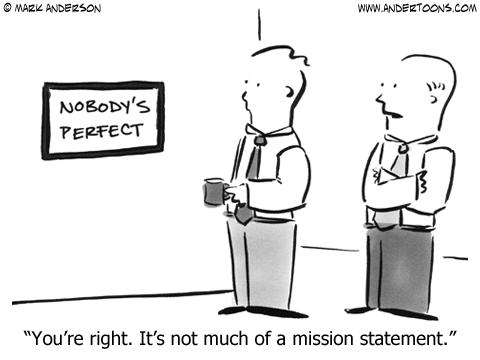The Habits Of Successful New Web Professionals
Starting a position in an organization, especially if it is your first in the industry, can be as nerve-wracking as it is exciting. Practices that seem like common sense to those of us who have been in the Web industry for some time might not be as obvious to designers and developers without the benefit of our experience.
I recently published an article here on Smashing Magazine titled “Lessons Learned in Leading New Web Professionals.” As a follow-up to that piece, this one looks at the other side of the team leader-new employee dynamic. We’ll cover the practices that I have found are consistently followed by employees who excel in their new role and grow in this industry.
Embrace The Company’s Culture
Every company is different — with policies, procedures and a culture unique to it. While much attention is given to ensuring that new employees understand these policies and procedures, understanding and embracing the company’s culture is just as important to long-term success. One way to embrace a company’s culture is to get involved — both in and outside the office.

If your company is holding an event or activity for employees, make it a point to attend. It could be a full-blown company party or a small after-hours get-together of only a few employees. Either way, it provides an opportunity to socialize with your new colleagues and begin to build relationships with the people you work alongside.
In the office, look for projects that interest you and that you feel you can contribute positively to. These could be normal client engagements or even side projects driven by small teams in the organization. By asking to be included in these projects, you’ll get time to work hands on with your colleagues and show them the value you bring to the team.
Now, the challenge to participating in these activities is that new employees often feel like outsiders, and many are reluctant to join in on the company’s planned events. The irony, though, is that participating in these company events is one of the best ways to feel like part of the team and to break down that outsider status.
Respect The Client
Complaining about clients is a practice that has been around as long as clients themselves, but it has no place in the Web industry, whether you are a new professional or a seasoned veteran.
Clients can be challenging, but remember that when they stop calling you with questions or with work to be done, that is the day you no longer have a job. We are here because of our clients, not in spite of them.
Does this mean that the client is always right and that you should take whatever they dish out at you with a smile and a nod? Of course not. No one should ever suffer a client who disrespects them professionally or personally, but an abusive client who must be fired is very different from one who simply asks a lot of questions because they recognize that you are the expert. Yes, clients make poor decisions at times, and some of their questions will seem obvious or silly to you, but your answers and advice are why they hired you in the first place.

Respect clients — they keep you employed — and refrain from the bouts of unnecessary complaining that others in the organization might engage in. If others are complaining and trying to rope you in, politely excuse yourself. Nothing good will come of those negative conversations.
Ask Questions
As a new employee, you will undoubtedly have questions — a lot, in fact. That is OK. In fact, it is expected. You might feel like you are bothering others, but asking questions is how you learn and how “tribal knowledge” is passed from veterans in an organization to newcomers.

When you join, a company will likely give you some kind of orientation and show you the ropes, but only so much information can be conveyed in an orientation or in training. So much of what you will need to know is picked up on the job, by actually doing the work itself. When you hit a roadblock, look to others on the team for help. They will often have encountered the issue before and have set a precedent for dealing with it — the aforementioned tribal knowledge. Gaining that knowledge through experience and by asking questions is how you will grow in the organization.
Source : www.smashingmagazine.com
